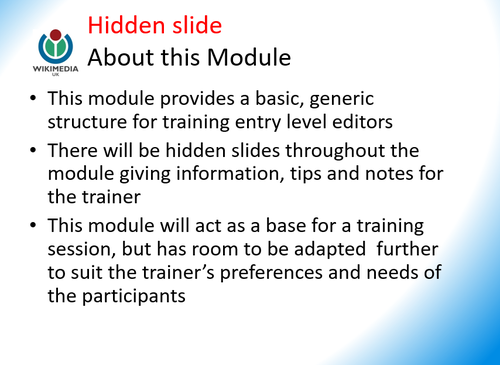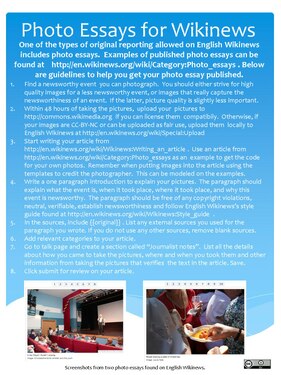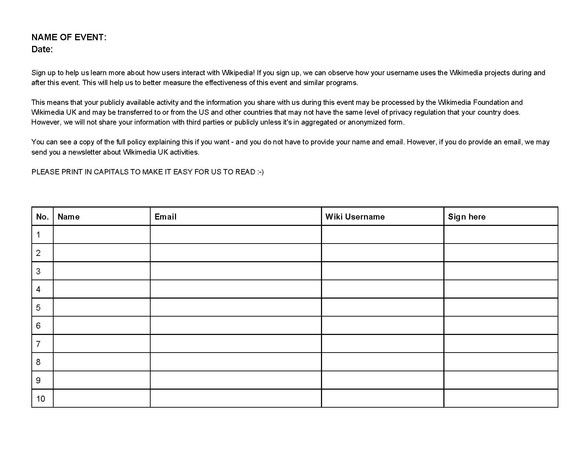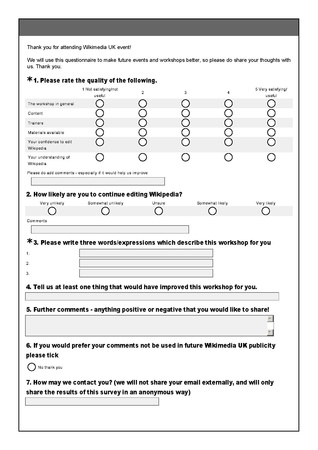Training: Difference between revisions
m updated image |
m Reverted edits by 173.87.168.86 (talk) to last revision by Richard Nevell (WMUK) Tag: Rollback |
||
| (46 intermediate revisions by 10 users not shown) | |||
| Line 1: | Line 1: | ||
__NOTOC__ | |||
<!-- This portal was created using subst:box portal skeleton --> | |||
{| width="100%" cellpadding="5" cellspacing="10" style=<!--H150 S15 V85--> border-style:ridge; border-width:4px; border-color: #738CBF" | |||
| width="55%" valign="top" style="padding: 0; margin:0;" | | |||
<div style="float:left; width:100%"> | |||
{| class="mp-topbanner" id="mp-topbanner" | |||
|<div style="font-size:162%; padding:.1em; color:#000;"> [[Training|The Training Portal]]</div> | |||
<span style="font-size:130%; padding:.1em; color:#000;">For trainers:</span> <span style="font-size:120%; padding:.1em; color:#000;">[[Training/For trainers|Advice]]{{,}}[[Training/Handouts|Handouts]]</span><br /> | |||
<span style="font-size:130%; padding:.1em; color:#000;">Learning to edit:</span> <span style="font-size:120%; padding:.1em; color:#000;">[[Events]]{{,}}<span class="plainlinks">[http://moodle.wikimedia.org.uk/ Virtual Learning Environment]</span>{{,}}<span class="plainlinks">[https://www.youtube.com/playlist?list=PLVx9pX-VnGVjAVQo8Qv_ohNP5r7JuzhRo YouTube how to]</span></span><br /> | |||
|} | |||
</div> | |||
<div style="float:left; width:100%"> | |||
{{:Training/Be a trainer}} | |||
</div> | </div> | ||
<div style=" | <div style="float:left; width:100%"> | ||
{{ | {{:Training/Materials}} | ||
</div> | |||
<div style="float:left; width:100%"> | |||
{{:Training/Handouts}} | |||
</div> | |||
<div style="float:left; width:100%"> | |||
{{:Training/Planning}} | |||
</div> | |||
|} | |||
{{clear}} | {{clear}} | ||
[[Category:Training]] | [[Category:Training]] | ||
Latest revision as of 08:15, 11 August 2022
What does being a trainer involve?Wikimedia UK trainers help to organise and deliver engaging workshops on topics such as how to edit Wikipedia. The audience often comprises of members of the public or staff at a partner organisation, and the workshops support our overall programme. We have an ongoing Training the Trainers programme for our volunteers. It's not compulsory to be an accredited trainer to train at Wikimedia UK events, but it does improve your skills. Any upcoming events will be listed on the events calendar. If you are interested in future Train the Trainers workshop, or helping train people at events please email info Training materialsOur materials for trainers include session plans, materials, advice on training methods and details of past events. Below is a template for a training session introducing people to the process of writing for Wikipedia. It can be used to give a training session, or parts added or taken away to adapt it for the audience. There are many ways to train people how to edit, and this is just one suggestion (developed by Midas, Wikimedia UK volunteers, and staff).  HandoutsThere are different ways of understanding people's learning styles. One model groups people who learn by visual cues (diagrams and charts), listening (talks, conversations, even one-to-one emails), reading/writing (essays, manuals), and demonstrations (using concrete examples). It is important to address these different styles, and the handouts below are useful for people who learn by reading and through demonstration as they provide detail on different aspects of editing.
PlanningWikipedia workshops are an important way for people to learn about the encyclopedia and contribute to Wikimedia UK's objectives. To measure that we want to collect people's user names so we can work out how many articles have been improved through the event. It's also useful to think about gathering feedback on how things have gone. The office can process these for you, and send you along the results. Send them along to one of the programmes team. Follow up is an important aspect of editing. The sign up form gives us permission to contact attendees afterwards, so we can send them resources like online training modules, or invite them contact trainers on their talk pages (if they're happy to do so). |






